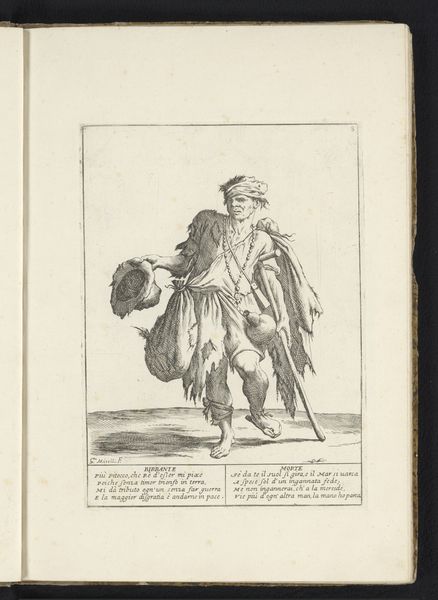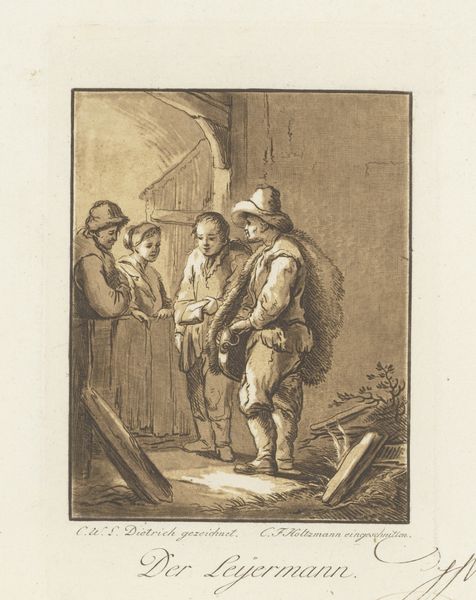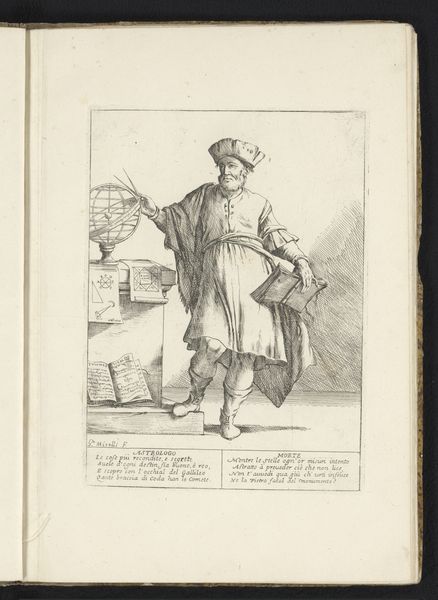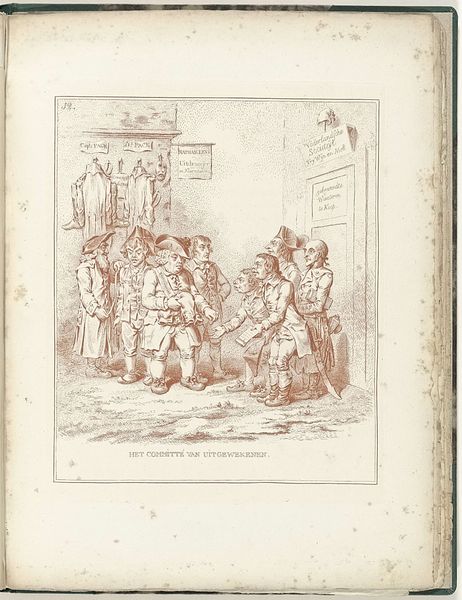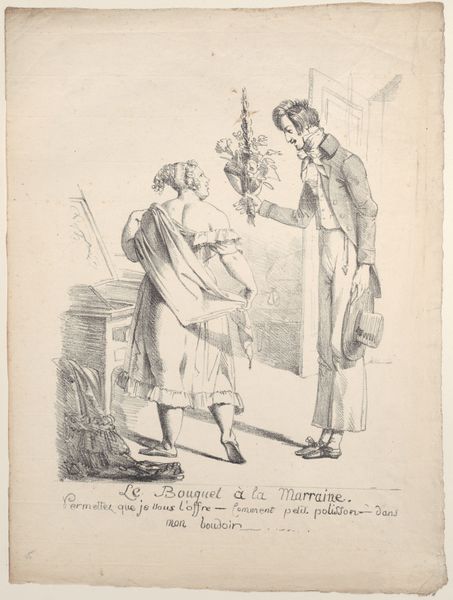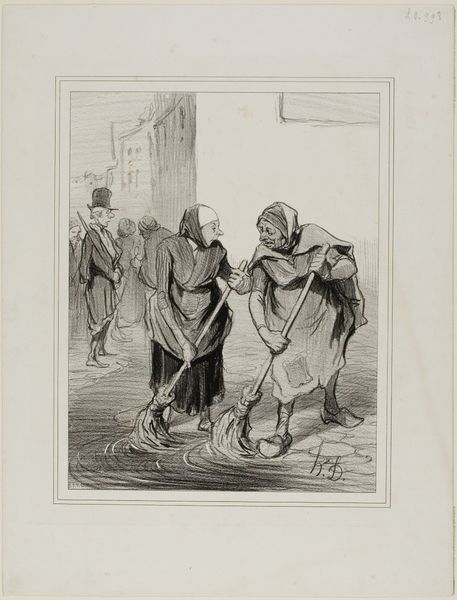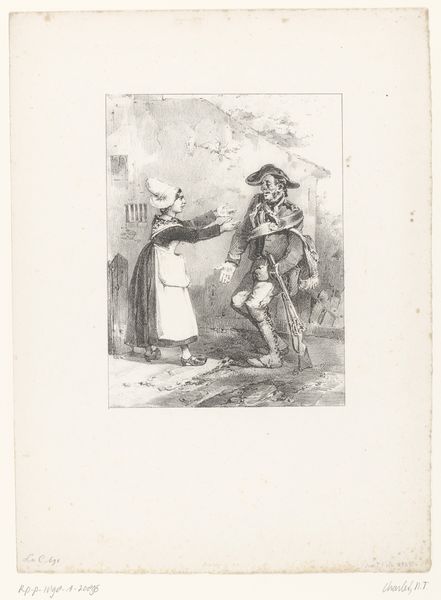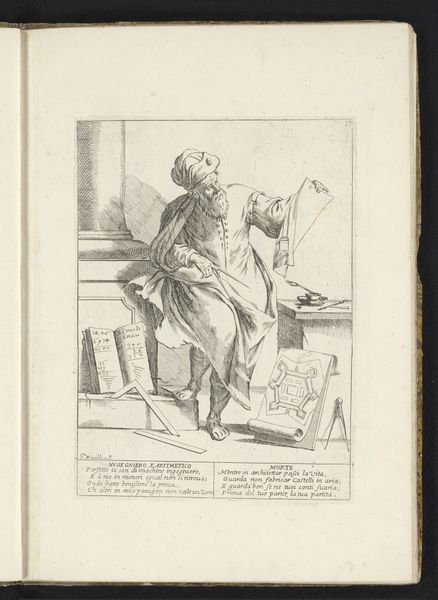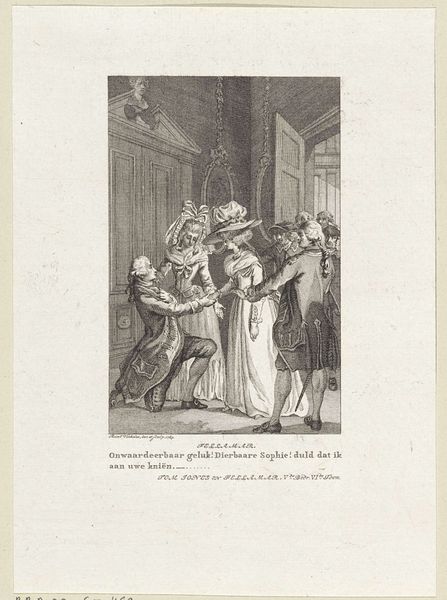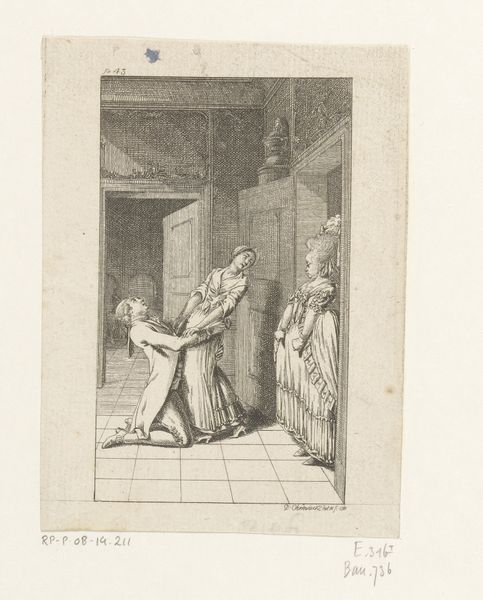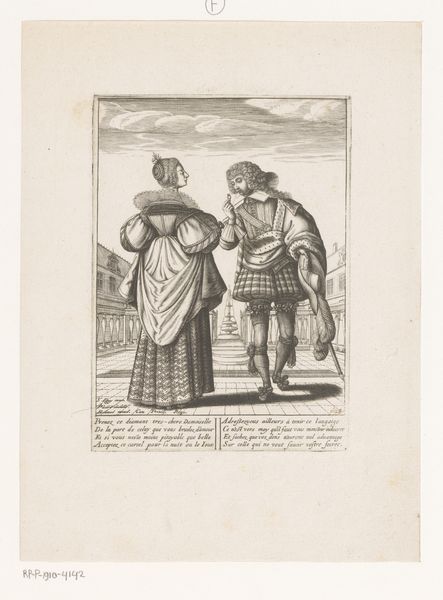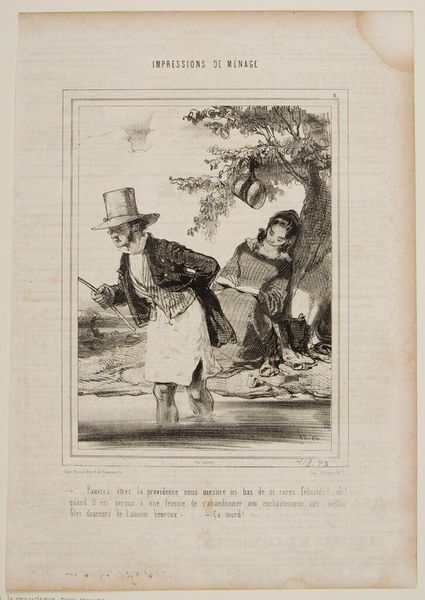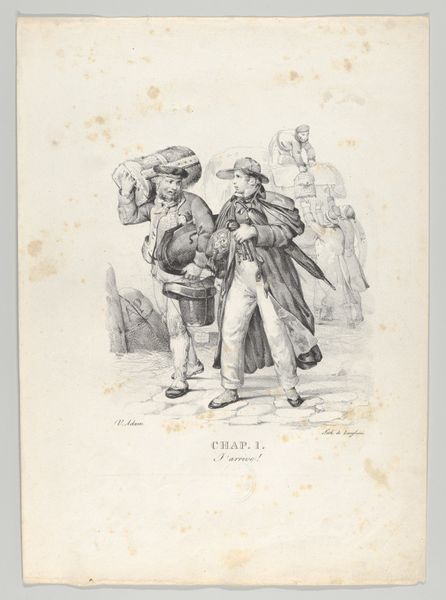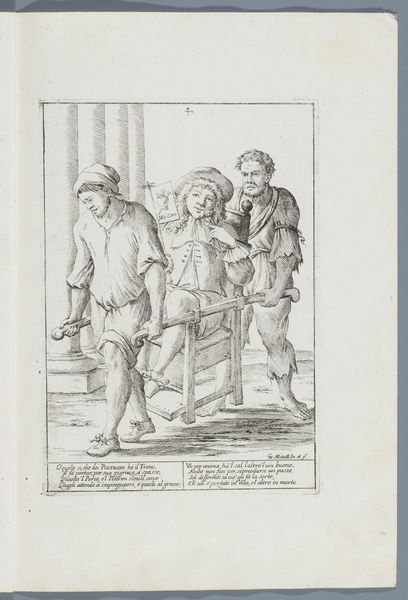
drawing, etching, ink
#
drawing
#
narrative-art
#
baroque
#
etching
#
figuration
#
ink
#
line
#
genre-painting
#
realism
Dimensions: height 274 mm, width 194 mm
Copyright: Rijks Museum: Open Domain
Giuseppe Maria Mitelli created this etching, “De luiwammes aan de bedelstaf,” during the 17th century, a time of stark social contrasts and inequalities. Mitelli’s work reflects the cultural norms and class distinctions of the period. The etching portrays a well-dressed man encountering a beggar. The contrast in their appearances speaks volumes about the economic disparities of the time. The man’s fine clothing symbolizes wealth and status, while the beggar’s rags represent poverty and marginalization. Mitelli doesn’t shy away from depicting the raw realities of 17th-century society, highlighting the vulnerability and desperation of those who were excluded from economic prosperity. The emotional tension in the scene is palpable. The beggar’s outstretched hand and pleading expression convey a sense of desperation, while the man’s reaction suggests indifference or discomfort. Mitelli invites us to consider our own responses to poverty and inequality. "De luiwammes aan de bedelstaf" serves as a powerful reminder of the human cost of social disparities and the importance of empathy and compassion.
Comments
No comments
Be the first to comment and join the conversation on the ultimate creative platform.
